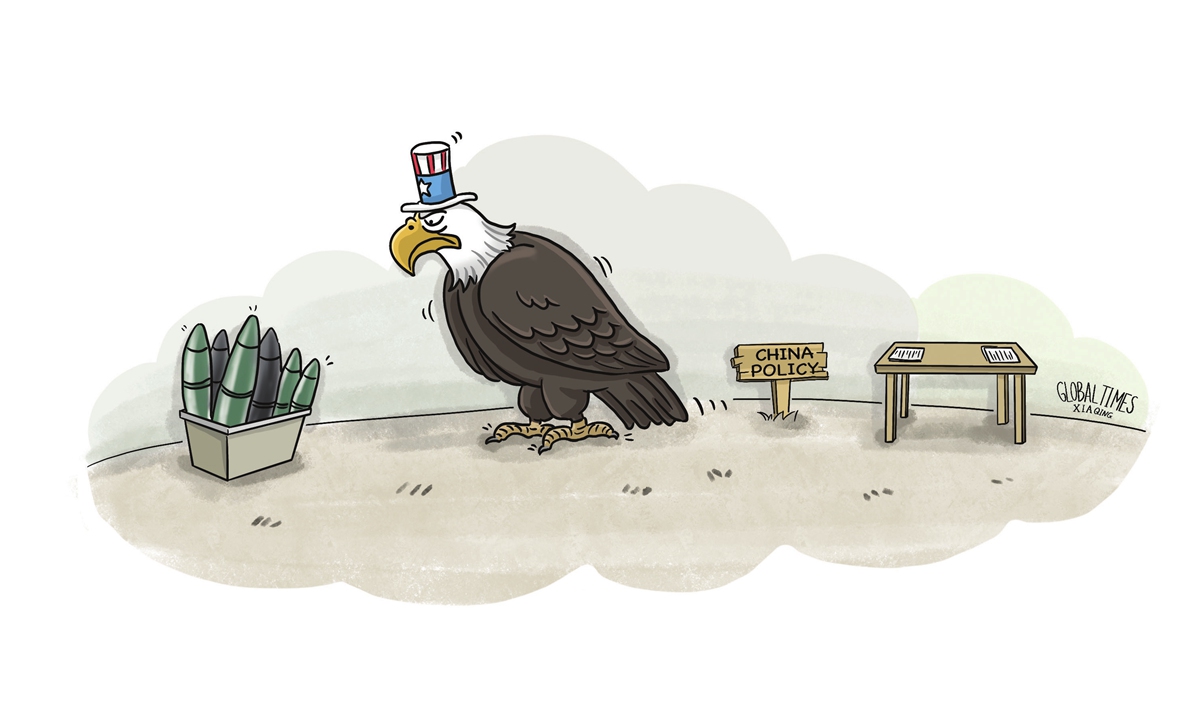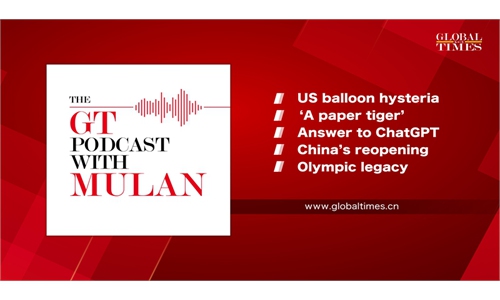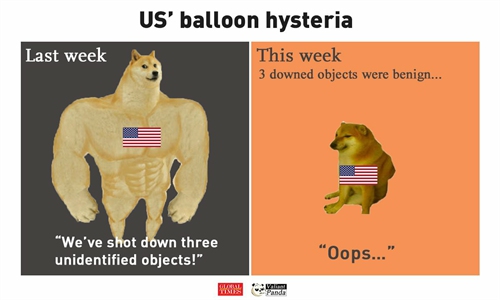
Illustration: Xia Qing/GT
When one reads the 2022 National Security Strategy of the US, it becomes crystal clear that, at least according to the world view as promulgated by the administration of President Joe Biden, the US and China are on trajectory that can only lead to one thing - military confrontation.At the core of this assessment is the enduring belief on the part of the Biden administration that the key to America's continued role as a world leader is the reinvigoration of "America's unmatched network of alliances and partnerships to uphold and strengthen the principles and institutions that have enabled so much stability, prosperity, and growth for the last 75 years."
The Biden administration has a name for this network - the rules-based international order. And sustaining the grip this order has on the world represents an existential challenge for the US.
According to the Biden administration, "The [People's Republic of China] is the only competitor with both the intent to reshape the international order and, increasingly, the economic, diplomatic, military, and technological power to advance that objective."
China, the Biden administration believes, is the greatest threat to the US, something the Biden administration makes abundantly clear. "The People's Republic of China harbors the intention and, increasingly, the capacity to reshape the international order in favor of one that tilts the global playing field to its benefit, even as the US remains committed to managing the competition between our countries responsibly."
The "responsible management" the Biden administration speaks of draws upon an "unrivaled network of allies and partners" which "protects and advances our interests around the world." The Biden administration's strategy for "competing" with China requires the US to "assemble the strongest possible coalitions."
But when one looks at the coalitions highlighted by the Biden administration as being central to this effort, one is struck by the exclusively militaristic nature of their mission—the North Atlantic Treaty Organization (NATO), the Australia-UK-US (AUKUS) security partnership, and a "revitalized Quad", which brings together the US with Japan, India, and Australia in a security arrangement designed to contain Chinese influence in the Indo-Pacific region—are all, at their core, military alliances.
"Competition", when it comes to the US approach toward China, is better defined as "deterrence", and "deterrence" is a military mission, one which the Biden administration has pledged to "act urgently to sustain and strengthen", noting that China is the "pacing challenge."
The result of the Biden administration's approach toward China is the militarization of what should be a classic problem of diplomacy, where the traditional tools of negotiation are increasingly replaced by confrontation.
The most recent example of this militarized approach is the so-called "Chinese Spy Balloon" crisis, where the Biden administration used the incursion by what clearly was a wayward high-altitude balloon equipped with sensors designed to collect atmospheric information used to investigate climate change to generate hysteria about a non-existent Chinese threat. This hysteria culminated in the US employing Air Force fighter aircraft to shoot down the balloon, destroying both it and its scientific payload.
The extent to which the Biden administration has supplanted diplomacy with "militarized" competition is underscored by the fact that, because of this self-generated Sinophobia, Secretary of State Antony Blinken cancelled plans to travel to China for high-level talks. At a time when the US and China should be exhausting every opportunity to engage in the kind of constructive dialogue the Biden administration claims as its principal tool for managing its relationship with China, the US has instead embarked on a phrenetic "balloon chase", where US fighter aircraft scour the American skies for even more "made in China" balloons to shoot down.
The militarization of US-Chinese relations reached its apex recently when US Air Force General Mike Minihan, the head of the US Air Mobility Command (AMC), issued a memorandum declaring that his "gut" told him that the US and China would be at war by 2025, and instructing the men and women under his command practice pistol marksmanship by firing a full "clip" of ammunition into a 7-meter target, aiming for the head.
While General Minihan's superiors have distanced themselves from the memorandum, the fact is his undiplomatic language is reflective of a core assessment dating back to 2021 known as "the Davidson Window", named after the former commander of the US Indo-Pacific Command, Philip Davidson, who postulated at that time that China would invade Taiwan within six years. The "Davidson Window" guides the posture of a US military which, by the Biden administration's own admission, uses China as its "pacing challenge."
The Biden administration would be well-advised to become grounded in old-school diplomacy rather than chasing balloons in the sky because, left unchecked, the ongoing militarization of the US-Chinese relationship can only lead to disaster.
The author is a former US Marine Corps intelligence officer. opinion@globaltimes.com.cn



